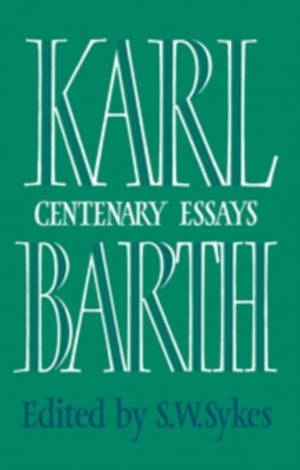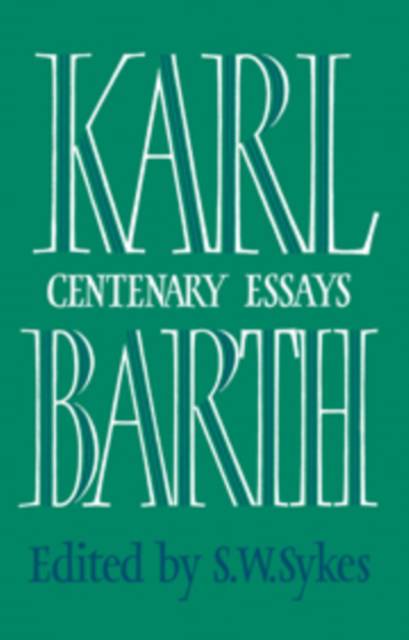
- Afhalen na 1 uur in een winkel met voorraad
- Gratis thuislevering in België vanaf € 30
- Ruim aanbod met 7 miljoen producten
- Afhalen na 1 uur in een winkel met voorraad
- Gratis thuislevering in België vanaf € 30
- Ruim aanbod met 7 miljoen producten
Zoeken
Omschrijving
This short volume, which emerged from the Karl Barth centenary year in 1986, brings together a collection of essays which makes an important contribution to Barth interpretation. Few would dispute the fact that Karl Barth is one of the great figures of twentieth-century theology, and two decades after his death he continues to fascinate those who study the field and his own thought in the magisterial, unfinished Church Dogmatics. Yet while his impact and influence upon modern theology has been great, Barth has been subject, too, to suspicion and sometimes to fierce opposition. The contributors to this book examine and refute some of the more simplistic reasons why the thought of Karl Barth has had a somewhat limited appeal in modern English-language theology. Writing form a variety of ecclesiastical persuasions, Reformed, Lutheran, Anglican and Roman Catholic, the authors seek to demonstrate at a fundamental level the continuing important of some of Barth's major concerns. Collectively the essays constitute a positive introduction to Barth, to his place in the history of the philosophy of religion, as a constructive theologian, as a Churchman and in specific relation to the modern history of English-language theology.
Specificaties
Betrokkenen
- Auteur(s):
- Uitgeverij:
Inhoud
- Aantal bladzijden:
- 184
- Taal:
- Engels
Eigenschappen
- Productcode (EAN):
- 9780521097215
- Verschijningsdatum:
- 9/01/2009
- Uitvoering:
- Paperback
- Formaat:
- Trade paperback (VS)
- Afmetingen:
- 140 mm x 216 mm
- Gewicht:
- 240 g

Alleen bij Standaard Boekhandel
+ 121 punten op je klantenkaart van Standaard Boekhandel
Beoordelingen
We publiceren alleen reviews die voldoen aan de voorwaarden voor reviews. Bekijk onze voorwaarden voor reviews.











